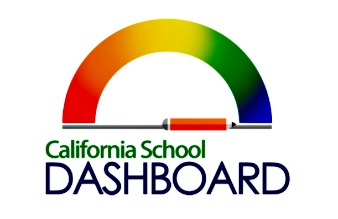The newly updated California School Dashboard was designed with the goal of supporting parents and community members in learning more about their children’s schools.
Parents are able to find helpful information and data points through a simple search. To begin, parents can type in the name of the desired school in the search engine and then select from the choices provided, given that many schools around the state have similar names. Before beginning the actual analysis, it’s helpful for parents to consider a goal that they hope to accomplish through looking at the data. For example, it’s useful for parents to know the test score averages that the school accomplishes, which is the information that I hoped to analyze through my search for my daughter’s school. Without a goal of what parents hope to learn, it’s hard to deduct an analysis since the amount of data given can be overwhelming without one.
Upon trying this out, I typed in the name of my daughter’s current elementary school into the dashboard. As soon as I hit the search icon, I was able to see data for enrollment numbers, the percentage of “socioeconomically disadvantaged” students, English Learners and the grade span of the school.
This information provides an adequate glance at the school overall but given that my desired focus was on test scores, I clicked under the state indicators of “English Language Arts” and “Mathematics,” which are the primary subjects in which elementary aged children are tested in California. Both clicks directed me towards a bigger data table broken up by sub-groups. For example, I was able to see testing data for students broken up by race, income levels, EL status, and more.
Given that my goal was to gather more information around the testing scores for my daughter’s school, I was only able to understand the data presented clearly for one subgroup due to the color coded key that is present at the bottom of the site. Other than that, the data is difficult to comb through because there isn’t a glossary or key for parents to be able to have background knowledge on the terms used.
As a college educated mother, who is also an educator, I found myself struggling to disaggregate the data presented because of the unclear manner in which it is presented. California cannot expect parents to keep themselves informed if the data they are making available is confusing and unclear. This experience of actually digging through the site made it obvious to me that our schools need to do a stronger job of presenting this resource to parents with the appropriate support needed to get a clear understanding of what it all means. How are parents supposed to support students in raising test scores, if we can’t even understand the starting point in which we are at? There is a great need for accessible data that parents across the entire state can access, regardless of educational background or income level.
To conclude, had I set a goal of researching neighborhood schools in the hopes of enrolling my daughter in the best option, like many parents do, this data would have been useless for me because all it does is present raw numbers and lacks parental perspective and even student and educator experiences. Balancing the crucial data with more organic parent and student experiences can support families in making important educational decisions.
Daniela Felix
Latest posts by Daniela Felix (see all)
- The Importance of Mid Year Data for Teachers, Students, and Families - December 18, 2019
- Las Familias Deben Participar en la Mejora de los Resultados de las Pruebas SBAC de California - December 10, 2019
- La Guia de los Aprendices de Inglés de California es un Recurso Útil para los Maestros - December 4, 2019
- California’s English Learner Roadmap Is a Helpful Resource for Teachers - December 2, 2019
- Families Need To Be Involved in Improving California’s SBAC Test Results - November 27, 2019

